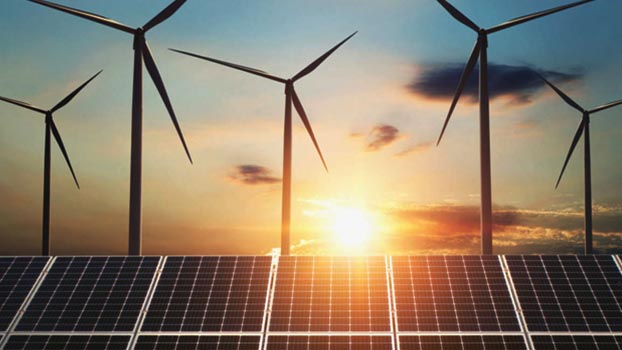Bosnian region to add 1,000 MW of renewables to trim carbon footprint

Bosnia's autonomous Serb Republic aims to add 1,000 megawatts (MW) of renewable energy sources by 2029 at a cost of 11.5 billion Bosnian marka ($6.7 billion) to smooth its transition from coal, its energy minister said, report agencies. The largest portion of projects, targeting solar, wind and hydro sources, will be carried out by the majority state-run power utility ERS, Petar Djokic said.
"We are aware of what the reality is in our neighbourhood and of European Union demands... and we must tap unused renewable energy potential to reduce our carbon footprint," he told an energy forum in the southeastern Bosnian town of Trebinje. ERS General Manager Luka Petrovic told Reuters that 20 per cent of the projects' value would be funded by ERS' equity and the remainder through loans.
ERS operates two coal-fired power plants with a combined capacity of 600 MW and three big and several small hydropower plants with a total capacity of 617 MW. To secure the funding, but also to put ERS on a solid footing, the utility has kicked off restructuring process which includes redundancies that will cut the workforce by the end of 2020 to 8,600 from the current 9,500. "The total workforce will be reduced by 20 percent in the coming period," Petrovic said. He added that additional savings would be made through the separation of generation, distribution and supply businesses by 2021.
"We will start operating at market terms as of next year, when small consumers will be able to choose their preferred supplier," he said. The region has already opened up markets for industry and small businesses. Petrovic added that electricity prices, which are 30 per cent lower in Bosnia than in the rest of the Western Balkans, would also have to be de-regulated and increased to achieve these goals.
He said that ERS Holding posted a small profit in 2019 due to three-month maintenance of one of its coal-fired plants and an outage at Croatia's 252-MW Dubrovnik hydro power plant, which supplies part of its power output to ERS, forcing ERS to import power to make up for the shortfall.



